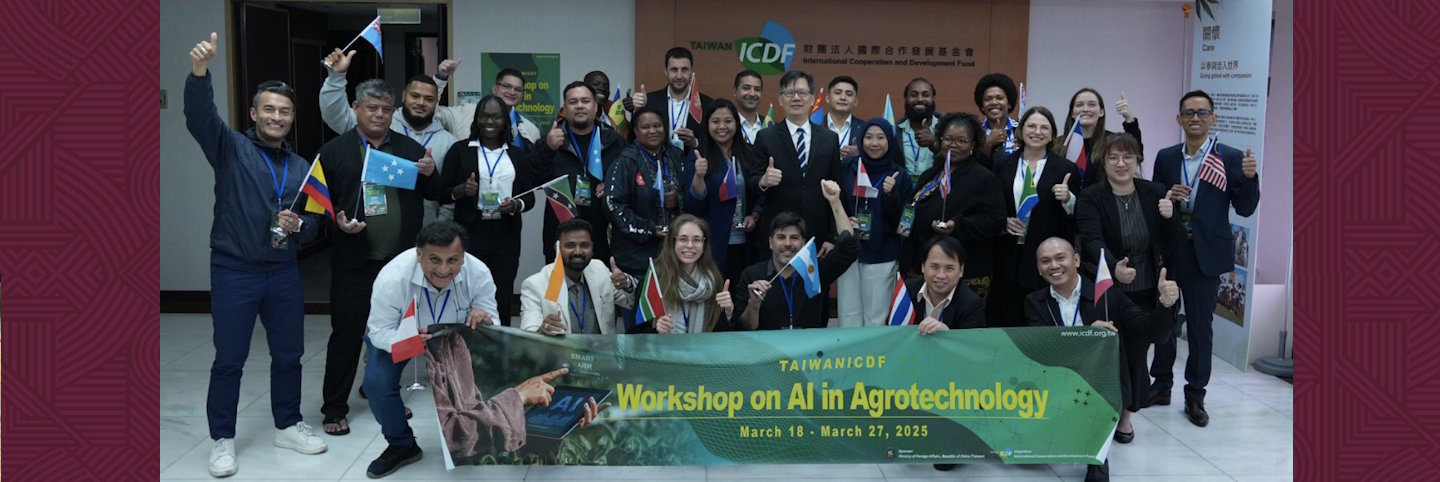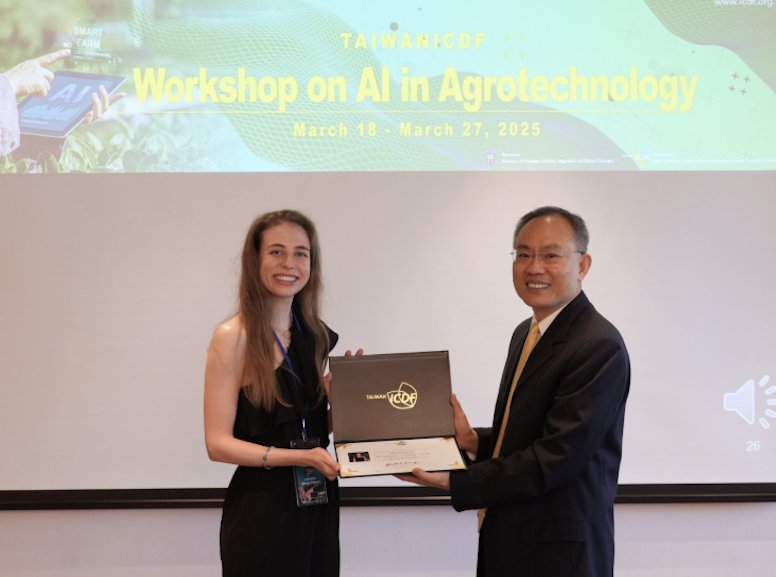
Workshop on AI in Agrotechnology
The Taiwan International Cooperation and Development Fund (ICDF) recently hosted a workshop on AI in Agrotechnology, inviting representatives from friendly nations to share new breakthroughs in agricultural innovations. The workshop not only showcased Taiwan’s Smart Agriculture technology development but also encouraged collaboration on future projects with participating countries. Manja Strever, an MSc Viticulture student affiliated with the South African Grape and Wine Research Institute (SAGWRI), participated in the workshop held in Taiwan.

Driving forces for Taiwan’s agricultural R&D:
- An increase in the average age of the agricultural labour force and growing labour shortages
- The impact of climate change, which intensifies adverse weather conditions such as typhoons
- Limited agricultural land available for production
In response, the Ministry of Agriculture in Taiwan has implemented its Smart Agriculture Program, which focuses on two main areas: smart production and digital services. The goals of this vision are to improve the efficiency and performance of agricultural operations, increase food safety and quality, and strengthen risk management. A key success factor is the close collaboration between government, higher education institutions, and agri-tech companies. This integrated approach allows for faster adoption of technological innovations, as aligned goals and collaboration lead to increased productivity.
Interesting topics discussed:
- Greenhouse technology: Due to Taiwan’s vulnerability to severe weather conditions such as typhoons, there is strong interest in smart greenhouses and vertical farming. Various greenhouse models were presented, including typhoon-resistant structures and smart greenhouses that can be remotely operated.
- Drone technology for precision agriculture: Taiwan has developed and manufactured several drone models for diverse terrains and use cases. The country holds five patents for drone designs, one of which includes a unique airflow rotor system that enables the drone to direct spray applications while in flight. This is particularly useful for treating tall trees and enhances precision in spray applications overall.
- Livestock monitoring systems: Taiwan has introduced digital technologies in livestock farming, including a pilot project for swine farms. These technologies support production management, environmental and health monitoring, and disease diagnosis. By automating tasks such as pig counting and observation, farmers can focus on more critical responsibilities.
Key take-away messages from the workshop:
- Use AI to handle non-essential tasks and reduce workload for producers, while recognising that domain knowledge remains crucial for interpreting and applying AI-generated outputs.
- High-cost equipment is not always necessary to implement precision agriculture.
- Accurate data about farm operations is essential for applying AI and precision management tools—record-keeping is therefore extremely important.
- Aim to balance the preservation of indigenous and traditional farming practices with the integration of new methods to enhance productivity and reduce labour inputs.
Article supplied by Manja Strever
Edited by Precious Canham



